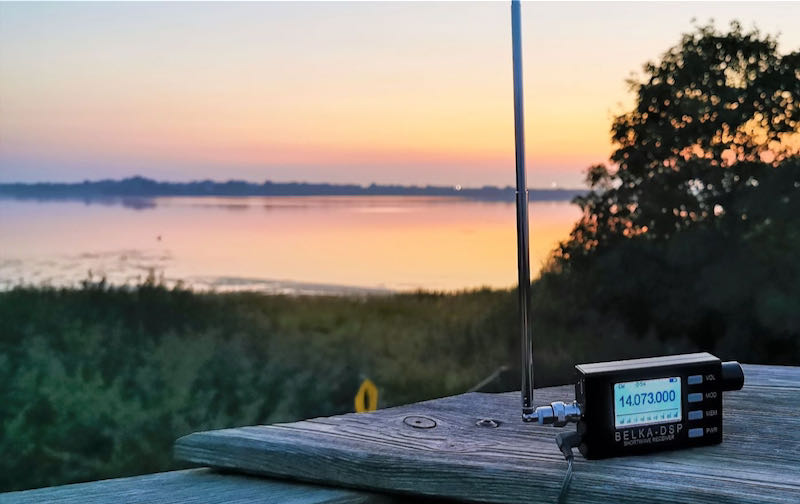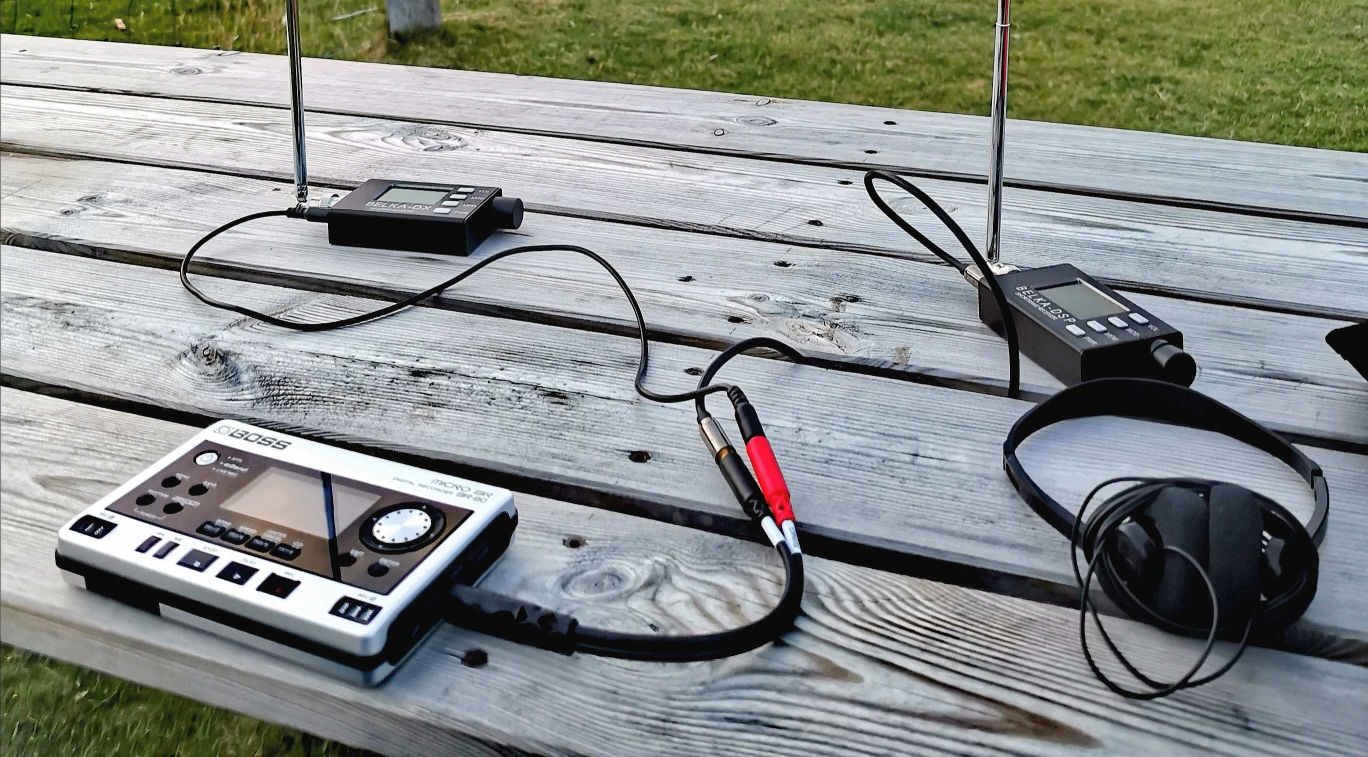Many thanks to SWLing Post contributor, 13dka, who shares the following guest post:
 Revisiting the Belka’s “pseudo-sync detector”: A sync detector crash course!
Revisiting the Belka’s “pseudo-sync detector”: A sync detector crash course!
by 13dka
“It’s usually hard to assess whether or not a sync detector helped with a particular dip in the signal or not, unless you have 2 samples of the same radio to record their output simultaneously and compare.”*
That’s what I wrote about the “pseudo sync detector” in my review of the Belka DSP last year.
Since I was recently upgrading to the Belka DX in order to pass on the Belka DSP to a friend, I had briefly two examples of almost the same radio on the table at the dike. I tuned them to the same stations and recorded some audio clips with one radio on sync detector, the other in regular AM mode, to answer the question whether or not sync has “helped with a particular dip in the signal”. Then I thought that demonstration would be an opportunity to try an explanation on what exactly (I think) sync detectors are all about anyway, hoping to find a middle ground between “technical” and “dumbed down beyond recognition”.
The trouble with sync detectors
Perhaps no component of a shortwave receiver is surrounded by so much misconception and confusion as sync detectors. Full disclosure: Until quite recently, I had an, at best, vague concept on what they do myself. It seems it’s not so much that people don’t know how they work, what they actually do when they work is where the ideas often diverge. Continue reading

